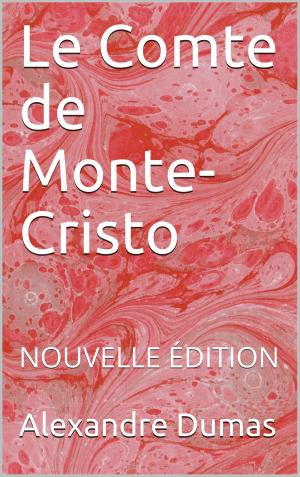| Author: | Voltaire | ISBN: | 1230001317343 |
| Publisher: | CP | Publication: | August 21, 2016 |
| Imprint: | Language: | English |
| Author: | Voltaire |
| ISBN: | 1230001317343 |
| Publisher: | CP |
| Publication: | August 21, 2016 |
| Imprint: | |
| Language: | English |
The princess Amasidia, daughter of Amasis, king of Tanis in Egypt, took a walk upon the highway of Peluaium with the ladies of her train. She was sunk in deep melancholy. Tears gushed from her beautiful eyes. The cause of her grief was known, as well as the fears she entertained lest that grief should displease the king, her father. The old man, Mambres, ancient magician and eunuch of the Pharaohs, was beside her, and seldom left her. He was present at her birth. He had educated her, and taught her all that a fair princess was allowed to know of the sciences of Egypt. The mind of Amasidia equalled her beauty. Her sensibility and tenderness rivalled the charms of her person, and it was this sensibility which cost her so many tears.
The princess was twenty-four years old; the magician, Mambres, about thirteen hundred. It was he, as every one knows, who had that famous dispute with Moses, in which the victory was so long doubtful between these two profound philosophers. If Mambres yielded, it was owing to the visible protection of the celestial powers, who favored his rival. It required gods to overcome Mambres.
Amasis made him superintendent of his daughter's household, and he acquitted himself in this office with his usual prudence. His compassion was excited by the sighs of the beautiful Amasidia.
"O my lover!" said she to herself, "my young, my dear lover O greatest of conquerors, most accomplished, most beautiful of men! Almost seven years hast thou disappeared from the world. What god hath snatched thee from thy tender Amasidia? Thou art not dead. The wise Egyptian prophets confess this. But thou art dead to me. I am alone in the world. To me it is a desert. By what extraordinary prodigy hast thou abandoned thy throne and thy mistress?—thy throne, which was the first in the world. However, that is a matter of small consequence but to abandon me, who adores thee O my dear Ne——"
She was going on.
"Tremble to pronounce that fatal name," said Mambres, the ancient eunuch and magician of the Pharaohs. "You would perhaps be discovered by some of the ladies of your court. They are all very much devoted to you, and all fair ladies certainly make it a merit to serve the noble passions of fair princesses.
The princess Amasidia, daughter of Amasis, king of Tanis in Egypt, took a walk upon the highway of Peluaium with the ladies of her train. She was sunk in deep melancholy. Tears gushed from her beautiful eyes. The cause of her grief was known, as well as the fears she entertained lest that grief should displease the king, her father. The old man, Mambres, ancient magician and eunuch of the Pharaohs, was beside her, and seldom left her. He was present at her birth. He had educated her, and taught her all that a fair princess was allowed to know of the sciences of Egypt. The mind of Amasidia equalled her beauty. Her sensibility and tenderness rivalled the charms of her person, and it was this sensibility which cost her so many tears.
The princess was twenty-four years old; the magician, Mambres, about thirteen hundred. It was he, as every one knows, who had that famous dispute with Moses, in which the victory was so long doubtful between these two profound philosophers. If Mambres yielded, it was owing to the visible protection of the celestial powers, who favored his rival. It required gods to overcome Mambres.
Amasis made him superintendent of his daughter's household, and he acquitted himself in this office with his usual prudence. His compassion was excited by the sighs of the beautiful Amasidia.
"O my lover!" said she to herself, "my young, my dear lover O greatest of conquerors, most accomplished, most beautiful of men! Almost seven years hast thou disappeared from the world. What god hath snatched thee from thy tender Amasidia? Thou art not dead. The wise Egyptian prophets confess this. But thou art dead to me. I am alone in the world. To me it is a desert. By what extraordinary prodigy hast thou abandoned thy throne and thy mistress?—thy throne, which was the first in the world. However, that is a matter of small consequence but to abandon me, who adores thee O my dear Ne——"
She was going on.
"Tremble to pronounce that fatal name," said Mambres, the ancient eunuch and magician of the Pharaohs. "You would perhaps be discovered by some of the ladies of your court. They are all very much devoted to you, and all fair ladies certainly make it a merit to serve the noble passions of fair princesses.















